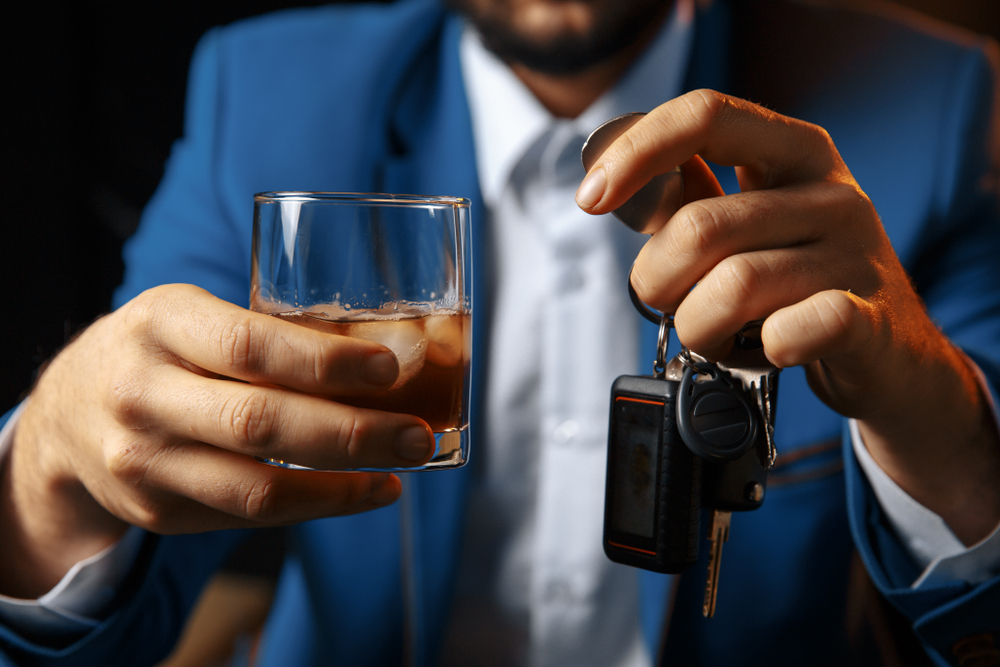
When you face a driving while intoxicated (DWI) charge in Texas, the potential penalties from a conviction are among the harshest in the United States. Trust that a Kaufman DWI lawyer from our team will do everything they can to help you avoid a conviction on this charge.
At the Law Offices of Randall B. Isenberg, we know that a DWI conviction can significantly change your life. We will fight aggressively to achieve a reduction or dismissal of your charge, depending on the circumstances and facts of your arrest.
Understanding the Serious Nature of Your DWI Charge
Some people may not think a DWI charge is all that serious. However, in Texas, a first-time DWI conviction carries a minimum penalty of a Class B misdemeanor. According to the Texas Penal Code § 12.22, a Class B misdemeanor includes potential penalties of:
- A fine of up to $2,000
- A jail term of up to 180 days
- The potential for both a fine and a jail term
You may also receive probation with the DWI charge, which could involve taking mandatory drug and alcohol tests. You may lose your driver’s license for up to a year, or you may need to install an ignition interlock device in your car at your expense.
Other Potential Consequences for a DWI Conviction
Additionally, depending on your age, your past criminal history, the level of intoxication police say you had, and whether you had involvement in an accident, your DWI charge could increase to a Class A misdemeanor or even a felony.
You may suffer unwanted changes in other aspects of your life too. If you have a job that requires driving or belong to a professional organization, a DWI conviction could cost you that job. You may also struggle to obtain auto insurance and suffer embarrassment in the community.
You Can Trust Us to Give You an Aggressive Level of Defense
Our Kaufman DWI attorneys know that the consequences of a DWI conviction are challenging. We believe strongly in defending you aggressively against this charge. Sitting back and hoping for the best is not part of our defense strategy.
For example, if Texas law enforcement officers who arrest you do not follow the guidelines for Texas SFST (standardized field sobriety testing), we can challenge their findings. Trust that we will investigate your case closely, looking for inconsistencies that indicate police may have failed to follow the law when collecting evidence.
Police Must Have Probable Cause to Stop Your Vehicle
Police must maintain your rights in a DWI stop in Texas. Police cannot pull you over or arrest you without following several precise steps. The officer must establish a reason for stopping your vehicle and choosing to run you through field sobriety tests.
If the arresting officer did not follow these rules in your case, our team will use that information to challenge the procedures police used. When you hire us to represent you, trust that your Kaufman criminal defense lawyer will aggressively defend your rights.
We Bring Unique Perspectives to Your DWI Case
One thing that sets our DWI law firm apart from others in the Kaufman area is that our founder, Randall B. Isenberg, has significant experience with all aspects of the criminal justice system.
In his 30-plus years of professional experience, he has spent time as a prosecutor, state district judge, and criminal defense attorney. This unique combination of experiences allows him to see each case from the perspective of everyone involved.
His ability to understand how the prosecutor may attack your DWI case makes it easier to craft a defense strategy that makes sense. He can anticipate how the judge may rule about a certain aspect of the case, allowing him to prepare for every eventuality. All his experience will work to your benefit.
How Our Team Can Help You
When you select our team to defend you against your criminal DWI charge, we fully understand that you deserve legal support. However, we will give you support in other areas of your life, too. Facing a DWI charge can be highly emotional, leaving you with many questions and concerns.
At the Law Offices of Randall B. Isenberg, we promise to give you our best effort. We never cut corners in your defense. We understand that you are placing a lot of trust in us, and we promise to earn that trust through every step of your case.
We Will Listen to Your Concerns
We’ll take the time to talk with you about your concerns and hopes for the case. We understand that many people involved in a DWI case may be going through the criminal justice system for the first time. We will do everything we can to prepare you for what you are about to face.
By listening to what you hope to see as an outcome in the case, we will better understand how to set up your defense strategy.
We Will Investigate Your Case Thoroughly
We always look at the circumstances and facts in your case from every possible angle. We will review surveillance footage, scrutinize police reports, speak with witnesses, and investigate the involved police officers’ actions. We do not leave any aspect of your case up to chance.
We Will Be Honest With You
While we understand that facing a DWI charge can be scary, we will not lie to you about the potential consequences. To give you the best possible representation, we need to be completely honest with you.

Our Kaufman DWI Lawyer Will Stand By Your Side Throughout the Case
Facing a DWI charge can be difficult. It may feel like you are all alone and that your future is uncertain. The Law Offices of Randall B. Isenberg will stand with you against this charge, working hard to help you achieve the best possible result.
To discuss your case during a consultation, reach out to our team today.










